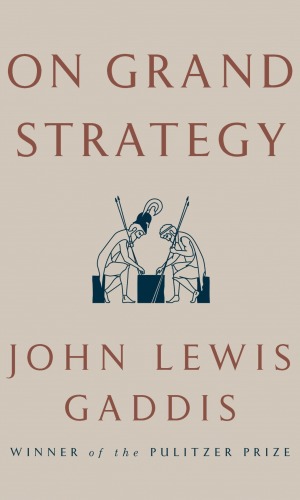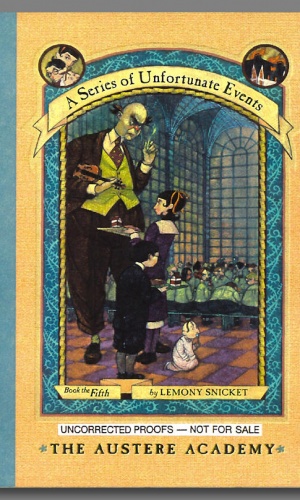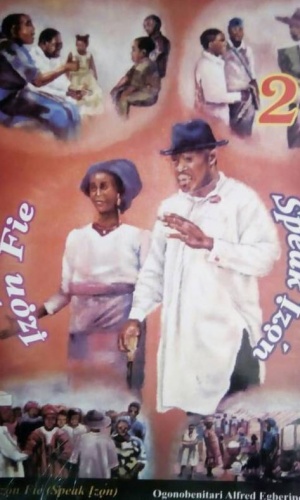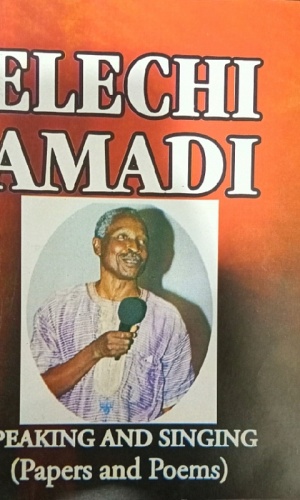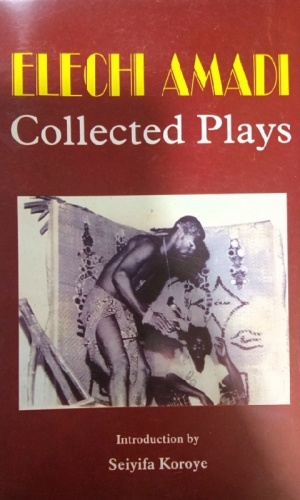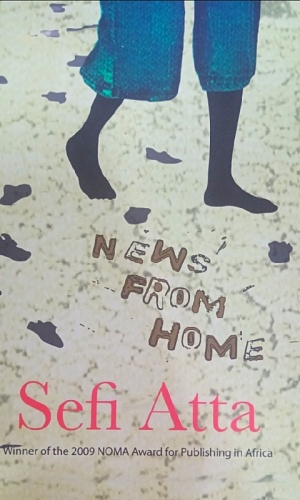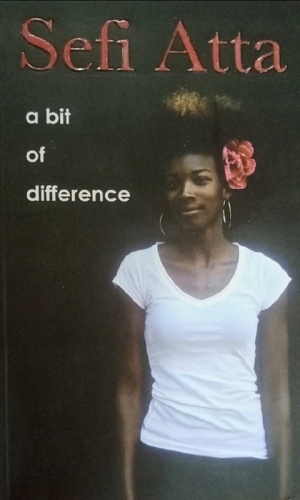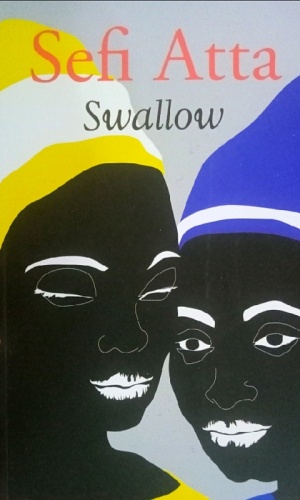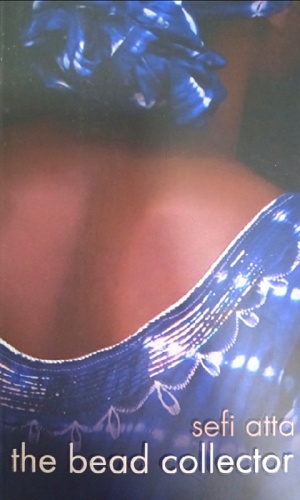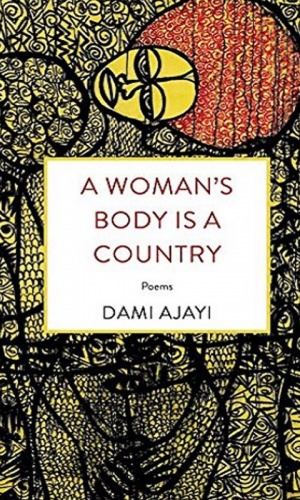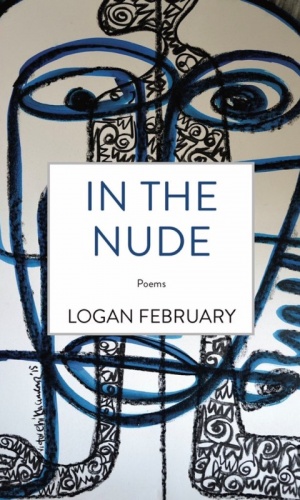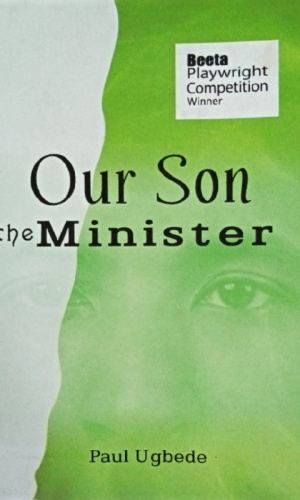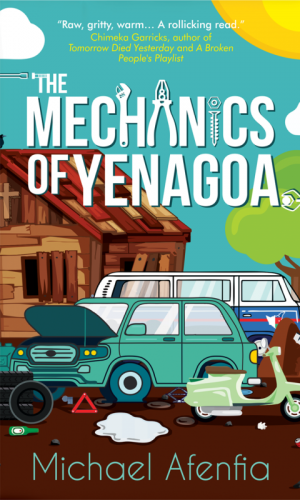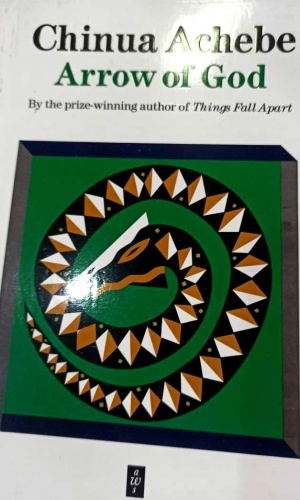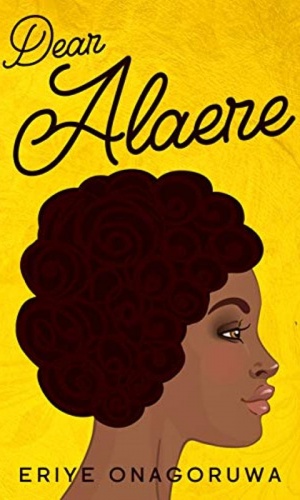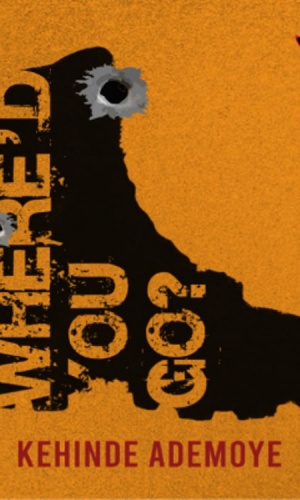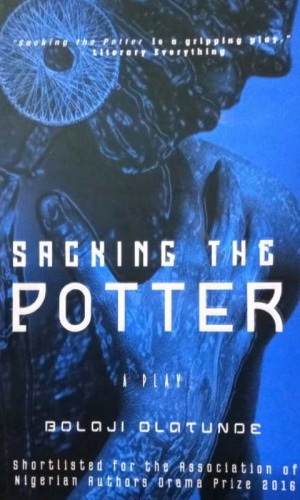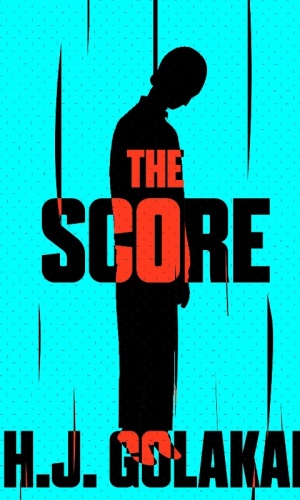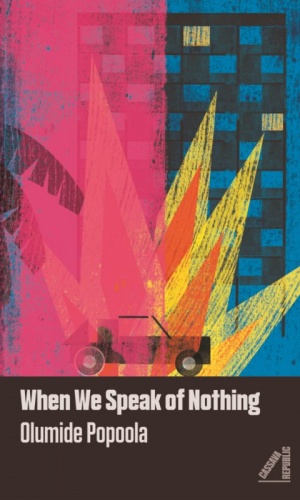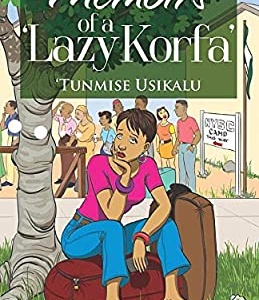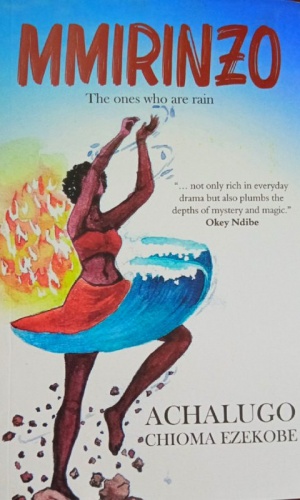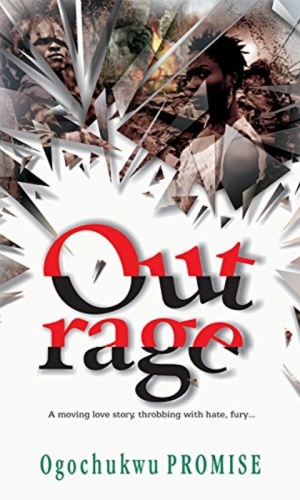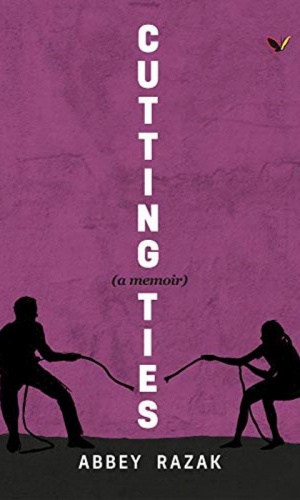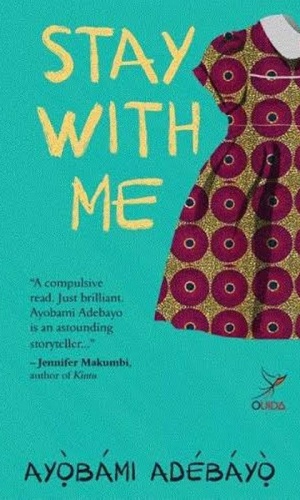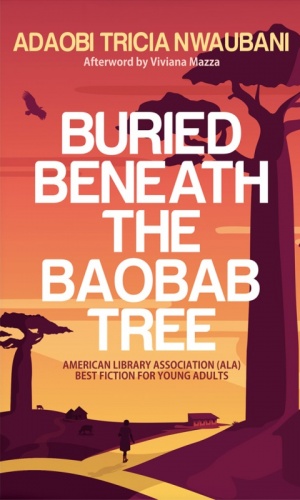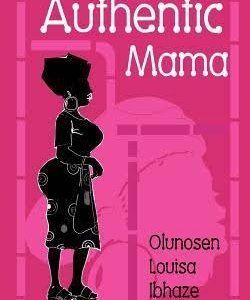258Products found
Filter
-
Speaking and Singing: (papers and Poems)
Speaking and Singing: (papers and Poems)
₦1,600 -
Collected Plays (African Writers Series)
Collected Plays
₦2,400 -
News from Home
Winner of the 2009 NOMA Award for Publishing in Africa
From Zamfara up north to the Niger delta down south, with a finale in Lagos, this collection of stories and a novella respond to and amplify the newspaper headlines in a range of Nigerian voices.
₦3,200 -
A Bit of Difference
At thirty-nine, Deola Bello, a Nigerian expatriate in London, is dissatisfied with being single and working overseas. Deola works as a financial reviewer for an international charity, and when her job takes her back to Nigeria in time for her father’s five-year memorial service, she finds herself turning her scrutiny inward. In Nigeria, Deola encounters changes in her family and in the urban landscape of her home, and new acquaintances who offer unexpected possibilities. Deola’s journey is as much about evading others’ expectations to get to the heart of her frustration as it is about exposing the differences between foreign images of Africa and the realities of contemporary Nigerian life.
₦7,500 -
Swallow
A new novel from the winner of the Wole Soyinka Prize for African Literature
It is the mid-1980s in Lagos, Nigeria, and the government’s War against Indiscipline is in full operation. Amid poverty and tight rules and regulations, women especially must sacrifice dignity and safety in order to find work and peace. Tolani Ajao is a secretary working at Federal Community Bank.₦7,500 -
The Bead Collector
Lagos, January 1976, six years after the Nigerian Civil War. A new military regime has been in power for six months, but rumours are spreading that a counter-coup is imminent. At an art exhibition in the affluent Ikoyi neighbourhood, Remi Lawal, a Nigerian woman who runs her own greeting-card shop, meets Frances Cooke, who introduces herself as an American art dealer, in Nigeria to buy rare beads. They become friends and over the next few weeks confide in each other about their aspirations, loyalties, marriage, motherhood – and Nigeria itself, as hospitable Remi welcomes the enigmatic Frances into her world. Remi’s husband, Tunde, naturally suspects Frances – like any American in Lagos – of gathering intelligence for the CIA, yet she is unconvinced. Cynical about the country’s unending instability, and alienated by the shallowness of the city’s elite, she willingly shares her views with Frances. But the February 13 assassination of General Muhammed prompts Remi to reconsider one particular conversation with her new acquaintance in a different light.
₦4,000 -
A Woman’s Body is a Country
Dami Ajayi’s second volume of poems, A Woman’s Body is a Country, interrogates the ramifications of affection. A work of impressive artistry, these are poems of life turned inside out, where time cheats on writers, and the people and things at the brunt end of our oppressive pleasures come back to haunt us.
₦2,000 -
In the Nude
In his engrossing collection, poet Logan February documents and interrogates grief, and God, and examines what it is to be on the outside, even in the family setting–the reality of having a queer identity in the African world. In this volume, eroticism and manic depression are navigated alone.
₦2,000 -
Our Son The Minister
Rated 4.00 out of 501It is a few hours to the swearing in of ministerial nominees and everyone thinks Dr. Makoji Ejembi has lost his mind, as they search for an urgent cure for him – Our Son the Minister.
₦1,600 -
The Mechanics of Yenagoa
Ebinimi, star mechanic of Kalakala Street, is a man with a hapless knack for getting in and out of trouble. Some of his troubles are self-inflicted: like his recurring entanglements in love triangles; and his unauthorised joyriding of a customer’s car which sets off a chain of dire events involving drugs, crooked politicians, and assassins. Other troubles are caused by the panorama of characters in his life, like: his sister and her dysfunctional domestic situation;
₦14,500 -
Arrow of God
Ezeulu, headstrong chief priest of the god Ulu, is worshipped by the six villages of Umuaro. But he is beginning to find his authority increasingly under threat – from his rivals in the tribe, from those in the white government and even from his own family. Yet he still feels he must be untouchable – surely he is an arrow in the bow of his God? Armed with this belief, he is prepared to lead his people, even if it means destruction and annihilation. Yet the people will not be so easily dominated.
₦1,600 -
Dear Alaere
Alaere Benson is your typical modern, professional woman in search of that elusive work-life balance and societal acceptance in Lagos. When she gets a job at Criole, she is excited to be working for a multinational company, but it does not take long for her to see that Criole is dysfunctional and bears an eerie similarity to Nigeria. As she struggles to find her footing in her new role, she witnesses a never-ending theatre of murder, sexual harassment and mysticism.
₦3,800 -
Where’d You Go?
A Collection of short stories about terrorism in Nigeria
₦2,600 -
Sacking The Potter
Michael Owoyemi is about to close a multi-million dollar business deal on behalf of his demanding employer. On the Monday morning scheduled for the closure of the deal, Biola Owoyemi, his usually reserved wife, physically restrains him from leaving their Ibadan home, insisting that he must stay at home to protect her and their first and only child, their two-month old son, from unnamed forces keen on snatching their child away from them.
₦1,800 -
The Score
In this fabulous follow-up to the internationally acclaimed The Lazarus Effect, newspaper reporter Vee Johnson reprieves her role as Cape Town’s most feisty female investigator. Vee and her ever-faithful sidekick, Chlöe Bishop, have been banished from City Chronicle’s newsroom to review a tourist lodge in sleepy Oudtshoorn. But Vee and Chlöe are barely checked in to their rooms when the first body is discovered… hanging from a tree, with Vee’s purple silk scarf used as a noose. But is it suicide or strangulation? As Vee investigates the death, she is pulled into a bewildering world of conferences and corruption, dog-walking and drug addiction, break-ins and black economic empowerment.
₦4,100 -
When We Speak of Nothing
Best mates Karl and Abu are both 17 and live near Kings Cross. It’s 2011 and racial tensions are set to explode across London. Abu is infatuated with gorgeous classmate Nalini but dares not speak to her. Meanwhile, Karl is the target of the local ‘wannabe’ thugs just for being different.
When Karl finds out his father lives in Nigeria, he decides that Port Harcourt is the best place to escape the sound and fury of London, and connect with a Dad he’s never known.
Rejected on arrival, Karl befriends Nakale, an activist who wants to expose the ecocide in the Niger Delta to the world. Increasingly distant from happenings in London, Karl falls headlong for Nakale’s feisty cousin, Janoma.
Meanwhile, the murder of Mark Duggan triggers a full-scale riot in London. Abu finds himself caught up in its midst, leading to a tragedy that forces Karl to race back home.
₦3,500 -
Memoirs of a ‘Lazy Korfa’
Even if you do not have a clue about about NYSC, you will discover in this entirely relatable story what can happen when one person ventures into the amazing, challenging unknown – and the strange adventure that unfolds.
₦3,600 -
Mmirinzo
Olivia suddenly begins to suffer unexplained blackouts, then in twist of fate, finds out that she is an Mmirinzo-an ancient sect of rainmakers.
₦3,000 -
Outrage
Outrage is a story of struggle; the conflicts which have become associated with the exploration of oil in the Niger Delta are la carefully blended with a love story, that of Boma and Sekibo, a factional leader of the Niger Delta militants. Boma is torn between her love for Sekibo and her loyalty to Reverend Tabore, her aunty and guardian, who is a government stooge. The constant conflicts in the story spring up from the clashes between the various militant factions, the differences between the militants and the government, and the dilemma of choosing between love and family ties.
₦1,500 -
Cutting Ties
Abbey Razak shares her harrowing tales of years of marital abuse in Cutting Ties. Join Abbey as she details her experience with her toxic marriage with a religious fanatic, a meddling mother in law, dealing with depression but finally rising above it all to begin on the path to a new life with her children and with hope that the future will only get better.
₦3,600 -
Stay With Me
Yejide is hoping for a miracle, for a child. It is all her husband wants, all her mother-in-law wants, and she has tried everything – arduous pilgrimages, medical consultations, dances with prophets, appeals to God. But when her in-laws insist upon a new wife, it is too much for Yejide to bear. It will lead to jealousy, betrayal and despair. Unraveling against the social and political turbulence of 80s Nigeria, Stay With Me sings with the voices, colors, joys and fears of its surroundings.
₦9,600 -
Buried Beneath The Baobab Tree
Adaobi brings her years of journalistic endeavour to bear in this gripping story of woe, abuse and admirable fortitude; of a young girl whose dreams of a university education facilitated by a prestigious scholarship, is shattered when Boko Haram Terrorists attack her village and take her and other women captive after killing her brothers and father among others. This is a well-spun tale that traces the experiences of the women in the hands of the terrorists.
₦100,000



